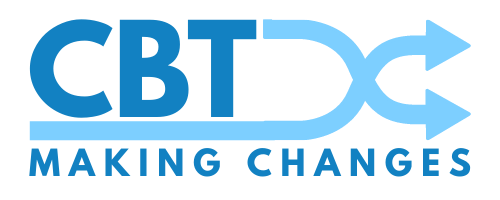Cognitive Behavioral Therapy in Nantwich & Crewe
What is CBT?
A Cognitive Behavioural Therapist works alongside the individual, helping them to identify how their unhelpful thinking and behavioural patterns influence their problems. By doing so, the individual can then recognise the maintenance cycle and challenge both their thinking and behavioural patterns, resulting in a major improvement of how the individual feels and lives.
Cognitive Behavioural Therapy (CBT) offers a wide range of therapies, based on concepts derived from psychological models of human emotion and behaviour.
The National Institute for Health and Clinical Excellence (NICE) recommends Cognitive Behavioural Therapy (CBT) as an effective psychological treatment for the following problems:
Social Anxiety Disorder
Fybromyalgia
Health Anxiety
Generalised Anxiety Disorder
Panic Disorder
Agoraphobia with or without Panic
Post Traumatic Stress Disorder (PTSD)
Obsessive Compulsive Disorder (OCD)
Depression
Specific Phobia
Chronic Fatigue Syndrome
Body Dysmorphic Disorder (BDD)
Habit Disorders, Tics, Skin Picking, Trichotillomania (Hair Pulling)
CBT for long term conditions (LTC) and medically unexplained symptoms (MUS)
Cognitive Behavioural Therapy (CBT) for LTC and/or MUS is effective as individuals are most likely to experience anxiety and/or depression as a result of their LTC/MUS.
The aim of CBT is to offer strategies and techniques to better manage and gain control over their health issues. Resulting in subtle changes in the outlook of their health condition, thus reducing anxiety and depressive symptoms.
Dialectical Behavioural Therapy (DBT)
Dialectical Behavioural Therapy (DBT) is a talking therapy for individuals who feel intense emotions. It utilises adapted CBT methods, in order to develop coping strategies, gain an understanding of how to accept the feelings and make positive changes in life.
Children and Young Persons Psychological Therapy (CYP)
The process for CBT for CYP consists of an initial assessment with the parent/guardian, this allows for a greater understanding of the current reasons for referring their child or young person into the service. After the initial assessment, a treatment plan is agreed with the CYP and they will be seen on an individual or family present basis.
CBT Making Changes sees CYP clients with anxiety, depression, emotional and behavioural conditions.

